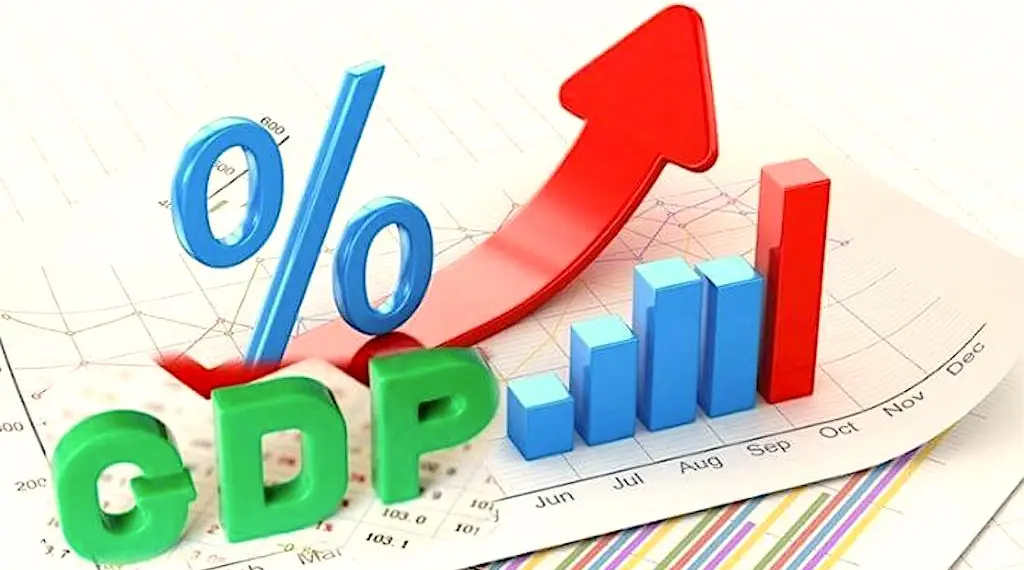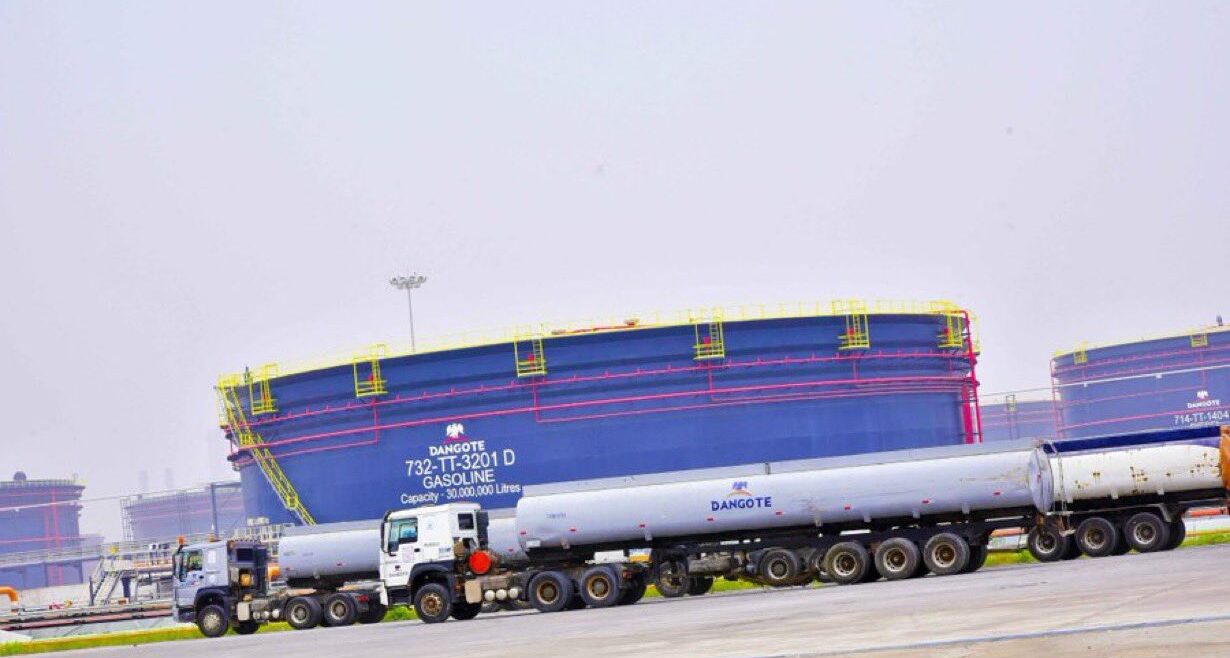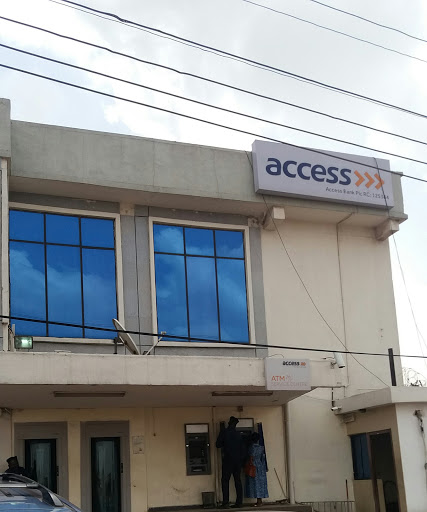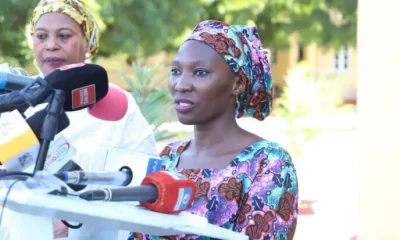Business
Nigeria’s oil production decreased to 1.08m b/d in July

Nigeria’s crude oil production decreased in July to an average of 1.08 million barrels per day (bpd) from 1.16 million the previous month.
The Nigerian Upstream Petroleum Regulatory Commission (NUPRC) said this in its latest crude oil and condensate production data for July 2022.
The report shows a 6.42 percent decrease from June’s production figures.
With the addition of condensate, oil output in July grew to a total of 1.31 million bpd from 1.40 million posted last month.
Condensate is a mixture of light liquid hydrocarbons, similar to a light (high API) crude oil — usually separated out of a natural gas stream at the point of production (field separation) when the temperature and pressure of the gas are dropped to atmospheric conditions.
In January, February, March, April, and May, the country’s crude oil production averaged 1.39 million bpd, 1.25 million bpd, 1.24 million bpd, 1.22 million bpd, and 1.02 million bpd, respectively.
Nigeria has consistently failed to meet the 1.8 million bpd production quota set by the Organisation of Petroleum Exporting Countries (OPEC).
In March, Timipre Sylva, minister of state for petroleum resources, had said poor investment and the exit of oil majors were affecting Nigeria’s ability to meet the oil production quota.
He also mentioned security issues as another major factor contributing to the lack of significant growth of the sector, adding that the drive towards renewable energy by climate enthusiasts had discouraged funding for the industry.
Recently, OPEC and its allies, known as OPEC+, agreed to raise September’s oil output target by 100,000 barrels bpd – in what appears to be a snub to US President Joe Biden’s call for a more robust increase which could lead to an easing of global supply pressures.
The group cited low investment in the global oil sector, and unavailability of excess capacity, as reasons for the small increase.
Nonetheless, for Nigeria, low crude oil production means reduced income as the country struggles to cover the cost of imported petrol from its oil and gas revenue.
“We are not seeing the revenues that we had planned for. When the production is low it means we’re … barely able to cover the volumes that are required for the (petrol) that we need to import,” Zainab Ahmed, minister of finance, budget and national planning had said.
Business
Nigeria’s GDP rate grew by 3.46% in Q3 2024, says NBS

The National Bureau of Statistics (NBS) says Nigeria’s annual gross domestic product (GDP) grew by 3.46 percent in the third quarter (Q3) of 2024.
The NBS, in its GDP report published on Monday, said the growth rate is higher than the 3.19 percent recorded in Q2 2024.
Business
Dangote refinery reduces ex-depot price of petrol to N970 for oil marketers

The Dangote Petroleum Refinery has announced a reduction in its ex-depot price of premium motor spirit (PMS), also known as petrol, to N970 per litre for oil marketers.
This is a cut from the refinery’s N990 ex-depot price announced earlier this month, according to a statement on Sunday.
The slash would help marketers save about N20 on each litre of petrol bought from the Lekki-based plant.
Anthony Chiejina, Dangote Group’s chief branding and communications officer, said the move is the refinery’s way of appreciating Nigerians “for their unwavering support in making the refinery a dream come true”.
“In addition, this is to thank the government for their support as this will complement the measures put in place to encourage domestic enterprise for our collective well-being,” the statement reads.
“While the refinery would not compromise on the quality of its petroleum products, we assure you of best quality products that are environmentally friendly and sustainable.
“We are determined to keep ramping up production to meet and surpass our domestic fuel consumption; thus, dispelling any fear of a shortfall in supply.”
Business
Allegation of missing fund untrue, says Access Bank

Access Bank Limited has dismissed as untrue allegations of missing fund and unethical behaviour.
The Bank in a statement said: “Our attention has been drawn to a video on social media wherein allegations of missing funds and unethical behaviour have been made against Access Bank PLC.
“First and foremost, we wish to emphasise that the safety and security of our customers’ funds are core priorities which we take seriously. Second, Access Bank Plc does not engage in or condone any unethical behaviour.
“In the instant case, the allegations of missing funds in the Bank are most untrue and baseless.
“There is no N500million or any other fund or amount missing from the subject customer’s account or from any other customer’s account with us.
“We and other independent stakeholders in the banking industry have thoroughly investigated these allegations and independently arrived at the same conclusions.
“Access Bank PLC operates with the highest ethical standards, and we protect our customers’ interests whilst also respecting privacy laws.
“Consequently, whilst we have engaged and will continue to engage with our customers, we must advise the public not to rely on or believe sensational and unverified claims that are designed to titillate and mislead the public.
“We remain committed to serving our customers.”
-

 Celebrities1 week ago
Celebrities1 week agoDaddy Freeze, Akah Nnani clash over Emmanuel Iren
-

 Business1 week ago
Business1 week agoLagos state government to commence upgrade of major junctions in Ikeja axis, seeks residents’ cooperation
-

 Politics1 week ago
Politics1 week agoDSS operatives arrest man with bags of cash during Ondo guber
-

 Special Features3 days ago
Special Features3 days agoIyabo Ojo, Brainjotter, Dayo Oketola, Penzaarville, Tomiwa and others to speak at the Bodex Social Media Hangout 5.0
-

 Health1 week ago
Health1 week agoFive ways to rid your home of ants
-

 News1 week ago
News1 week agoAlice Loksha, abducted UNICEF nurse, escapes captivity after 6 years
-

 News1 week ago
News1 week agoNnamdi Emeh: Suspect Facing Charges In Court, Process Independent Of Police Influence
-

 Politics1 week ago
Politics1 week agoAiyedatiwa takes commanding lead in Ondo guber poll after winning 15 of 18 LGAs


















